About Us
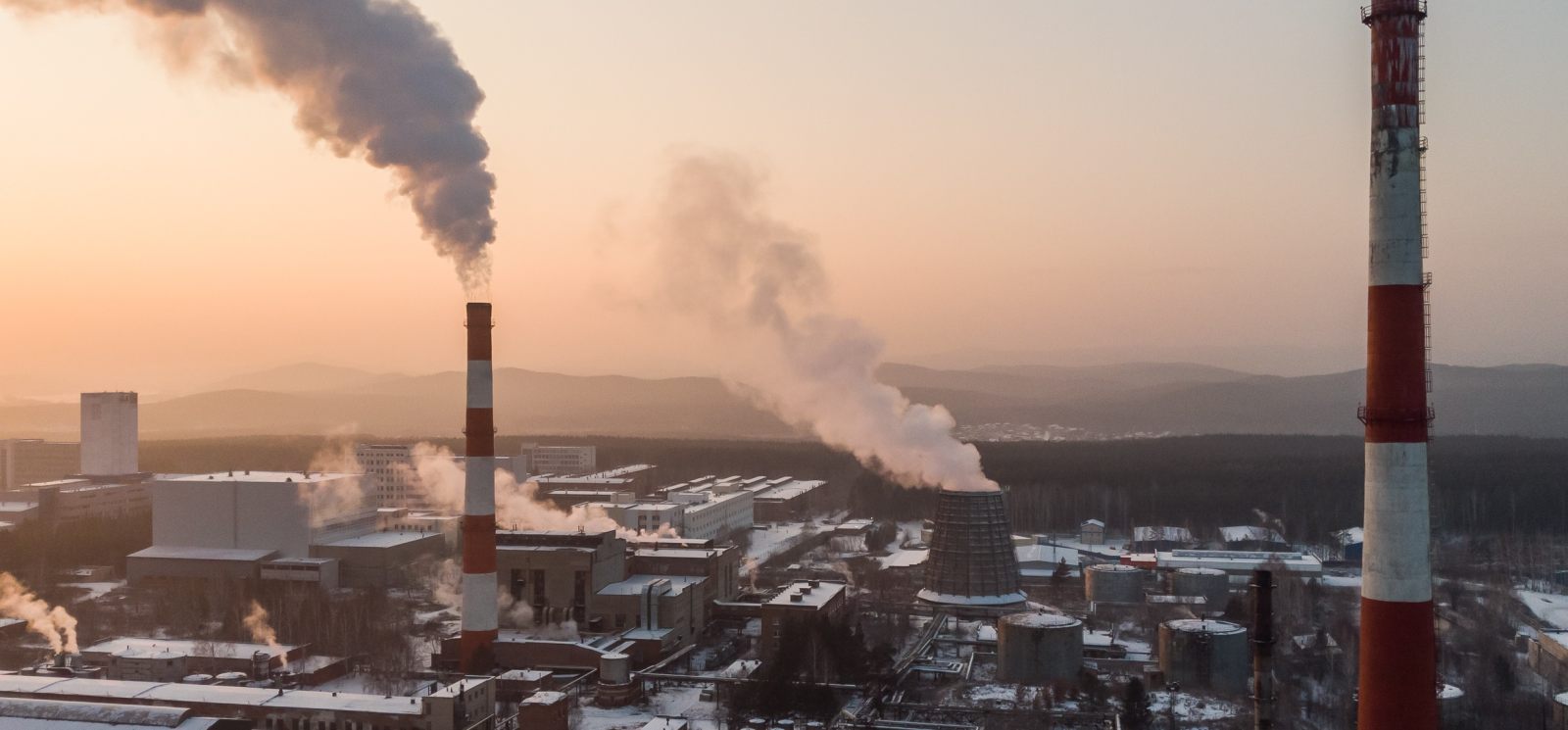
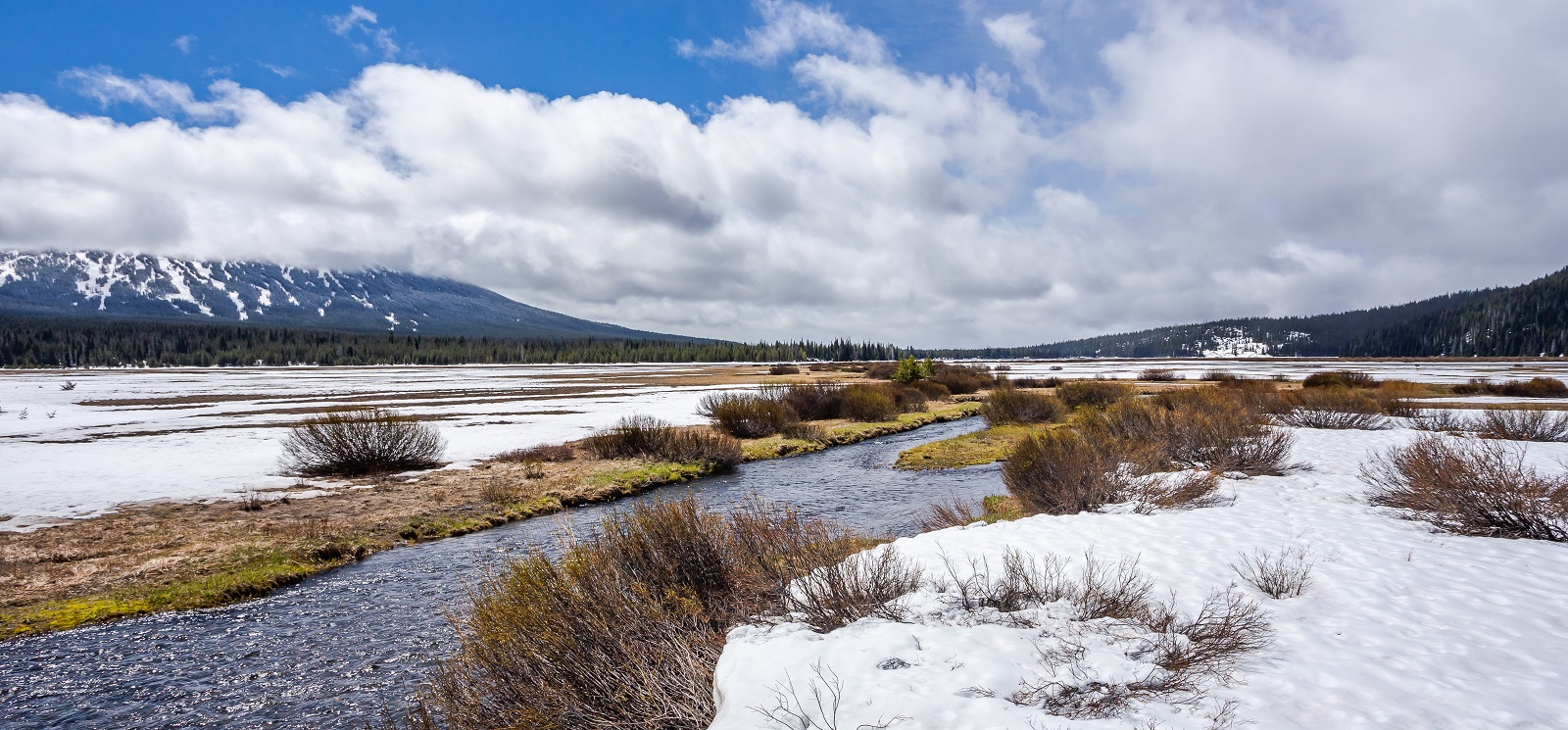
Our Mission
Beyond Toxics provides leadership to build a community-driven environmental justice movement for a thriving and just Oregon. As we look forward, Beyond Toxics envisions a future where we all have equitable access to healthy communities and a thriving environment.
Our Work in Action
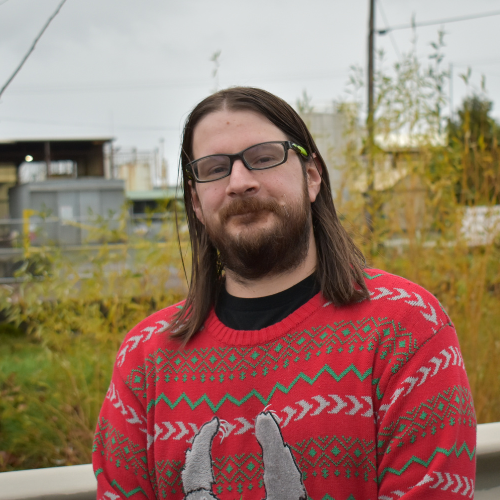
Stories from our community
Resilience, action and hope across Oregon

J.H. Baxter and its president plead guilty to environmental violations, lying to federal regulators
Beyond Toxics has worked for years to bring justice to the West Eugene community
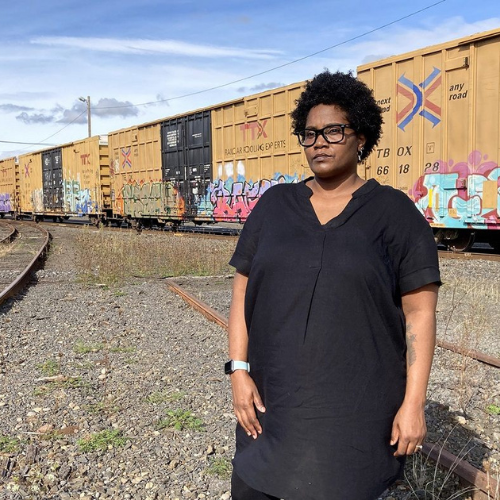
Why We Do The Work, an environmental justice podcast
Join host Arjorie Arberry-Baribeault for discussions with community members and leaders
Who We Are
Beyond Toxics uplifts voices from Oregon communities disproportionately impacted by pollution and climate change. We are a statewide nonprofit founded in 2001 and are located in Eugene, Oregon.
Our Impact
We collaborate with other nonprofits, educators, and tribal organizations to build a movement to demand that state and local policies require fair, inclusive, and equitable access to clean air, clean water, and safe spaces for all to live and work in.
Through grassroots organizing, policy advocacy and education, we support youth and diverse communities to become impactful environmental justice leaders across the state of Oregon.
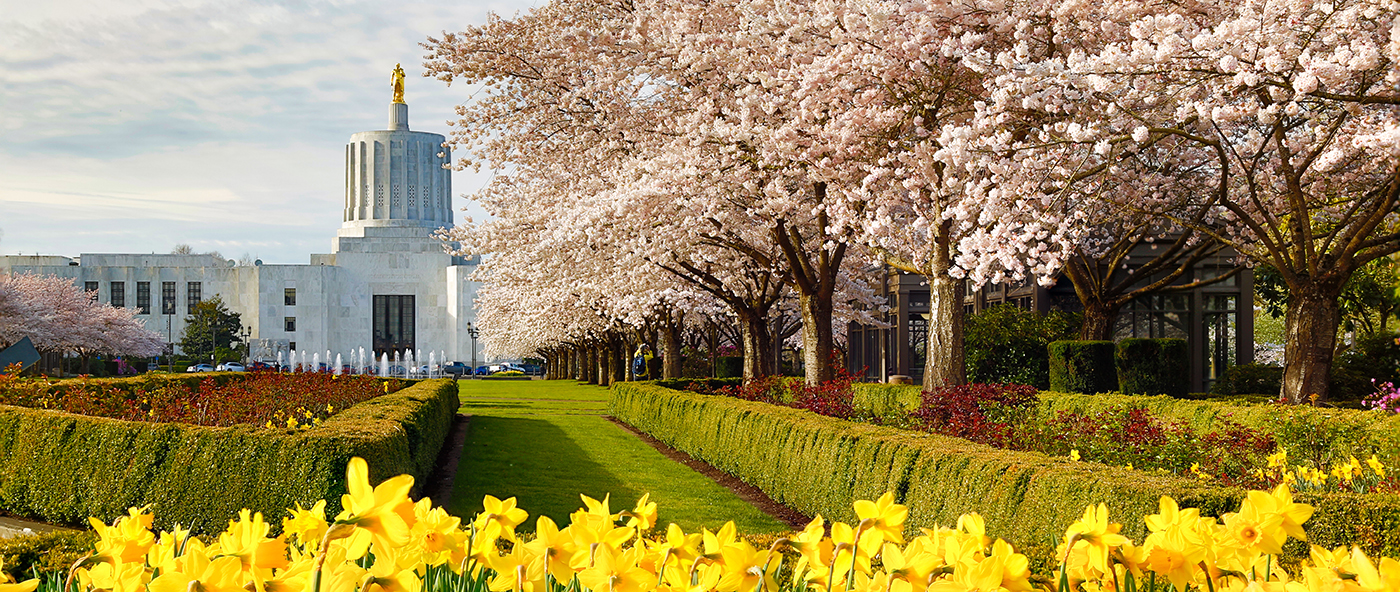
Our History
In the late 1990’s, Beyond Toxics’ original founders, including Mary O'Brien, Anita Johnson, Michael Carrigan amnd Steve Johnson successfully passed the model Community Toxics Right to Know law in the city of Eugene. This required polluters to report their emissions to the Fire Marshall for posting on a public website.
The local fight to pass a Community Toxics Right to Know law inspired Oregon’s environmental leaders to form an organization dedicated to toxics use reduction and environmental justice.
Beyond Toxics, originally Oregon Toxics Alliance, was founded in 2000.
How We Do Our Work
Beyond Toxics' Strategic Plan is visually represented in our illustrated Environmental Justice Theory of Change. Each of our five programmatic areas, shown in the outer petals, prioritizes empowering marginalized communities disproportionately affected by environmental hazards. The inner petals detail how our work merges intentional methods, such as grassroots organizing, outreach, education, coalition building, and law and policy modernization.
Our flower model was inspired by the Climate Adaptation Model adopted by the Confederated Tribes of the Umatilla Indian Reservation.
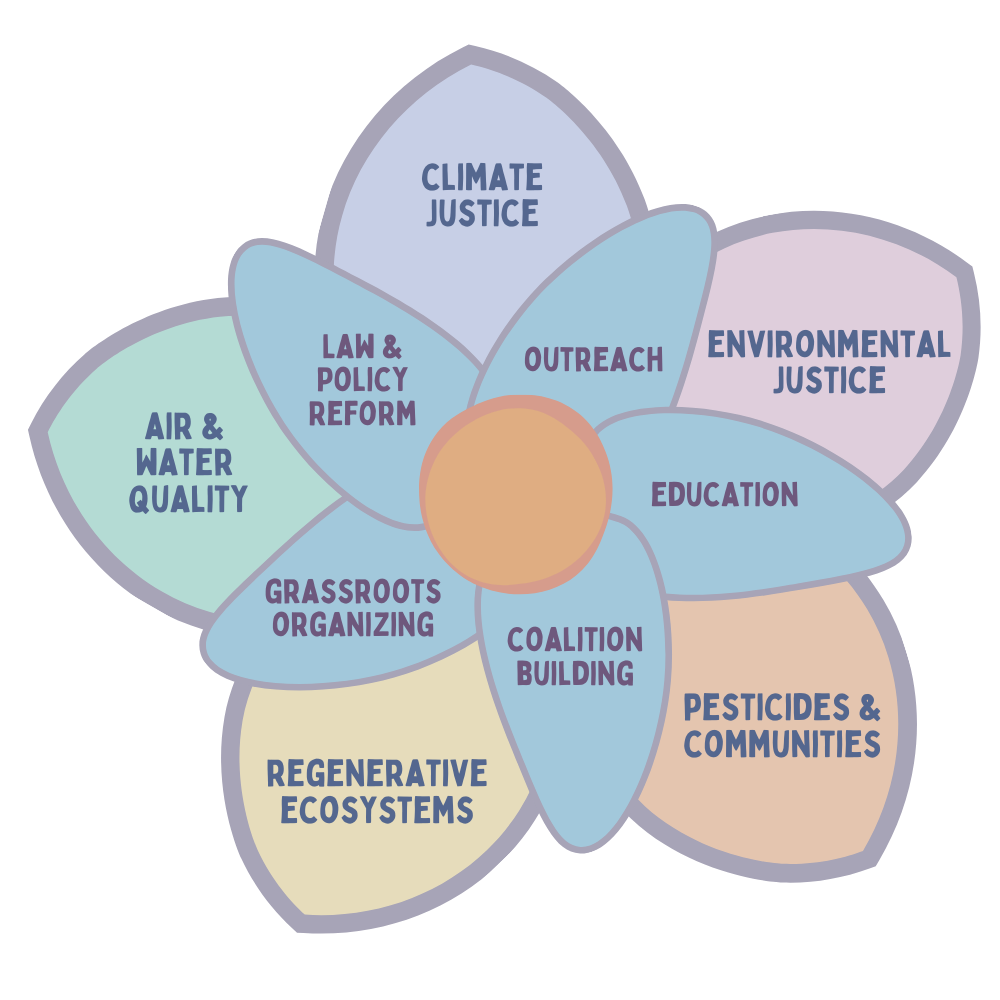
Environmental Justice
Grassroots organizing supports the leadership of low-income, rural communities, and communities of color fighting to protect themselves from the harmful effects of hazardous pollutants in their neighborhoods.
We work to empower marginalized communities in the following ways:
-
Uplifting the leadership and agency of communities affected by pollution and climate change.
-
Holding polluters accountable to regulations in place, and striving to strengthen environmental laws.
-
Conducting community-focused research projects and awareness campaigns.
Climate Justice
Amidst rapid warming, increased wildfires and drought, it's imperative that all communities have access to renewable energy, clean air and water and healthy living environments.
Our team advocates for equitable solutions to climate change impacts in the following ways:
-
Amplifying impacted voices in climate discussions.
-
Promoting policies to achieve statewide climate initiatives.
-
Educating and engaging with the public to reduce reliance on fossil fuels.
Pesticides and Communities
Exposure to pesticides correlates with a myriad of health issues and upsets the balance of nature's systems. Our goal is to establish comprehensive pesticide reforms that protect both human health and biodiversity.
We prioritize pesticide policies that guarantee full transparency and advance organic practices by:
-
Protecting children's health by discouraging pesticide use at our schools, parks and public spaces.
-
Conducting community-centered research and outreach on the harms of pesticides.
-
Providing support to Tribal community members to reduce herbicides in Tribal lands and resources.
Air and Water Quality
The air we breathe and the water we drink, bathe and swim in affects our health. Low-income families, Tribal communities and communities of color are more often burdened by air and water pollutants exceeding public health standards, futher exacerbating serious public health issues.
We stand up against air and water pollution in the following ways:
-
Promoting policies to enforce polluter accountability, transparency and the community's right to know about toxics.
-
Advancing policies to protect the health of our watersheds and air quality.
-
Standing in solidarity with Tribal Nations.
Regenerative Ecosystems
Chemical management of natural resources and land poisons food systems, ecosystems, watersheds and public spaces. We're working towards a regenerative economy that valuyes biodiversity and climate resilience and restores equilibrium to our ecosystems.
We provide leadership in many ways, including:
-
Protection of native bee populations through bee surveys, our pollinator garden plot, toxics-free projects and public education campaigns.
-
Advocacy for resilient and climate smart forestry projects.
-
Introducing and defending policies to protect Oregon's ecosystems and watersheds.

